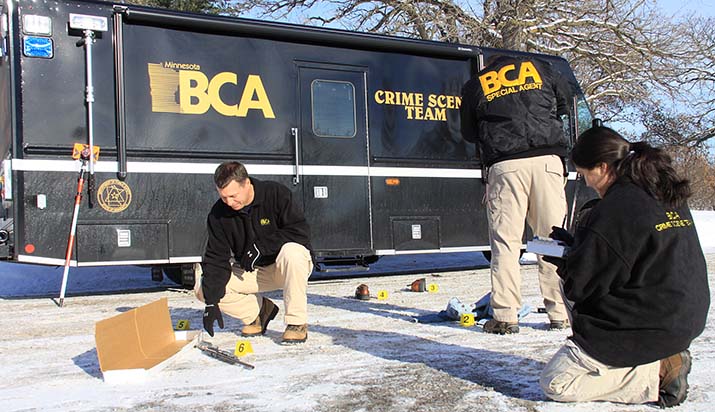Forensic science: As close to your favorite cop show as you’ll get
Feb. 25, 2019

There are more cop dramas out there than there are hours in a day. And you’ve likely been told that most of them aren’t accurate – that if you’ve decided on a career based on what happens on your TV screen, you’ll be sorely disappointed. But one thing is true about those TV dramas: They make forensic science look cool, and it actually is.
Take the forensic scientists at the Bureau of Criminal Apprehension, for example. The 132 scientists and support personnel in the BCA’s St. Paul and Bemidji labs are a highly educated, fact-driven staff whose work impacts peoples’ lives every day.
Forensic scientists collect evidence that could provide answers in a criminal investigation. They play key roles in high-profile cases; a recent example is when they provided an important new clue in a case by identifying decades-old human remains. Forensic scientists are also helping shape the future of scientific testing by developing or implementing innovative and efficient testing methods such as microcrystal testing.
But it’s not all lab coats and safety goggles. Forensic scientists also respond to crime scenes, train new forensic scientists, and testify as expert witnesses. Their skills can be used to help prove elements of a crime, verify or discredit statements, identify decedents or suspects, establish a connection to a crime or crime scene, and exonerate the innocent.
Does a career as a forensic scientist sound interesting? You’ll need a bachelor’s or advanced degree in biology, chemistry, forensic science, or equivalent. You might also want to get some additional coursework in mathematics, statistics, criminalistics, and public speaking. Add to that some excellent oral and written communication skills, intellectual curiosity, and an unbiased and integral nature, and you could fit right into a forensic science lab.
Don’t have a college degree? If you have two years of relevant experience, you may be able to work as a forensic lab technician where you will assist in evidence intake and processing.
But getting the job is just the first step. Once you’re hired, you’ll go through comprehensive training in specialty testing areas to meet national and international accreditation requirements.
So if you want to use your passion for science for the good of society, public health, and public safety, forensic science might be the career for you. The BCA even has an internship program so you can find out for yourself how close real forensic science is to your favorite TV drama.

